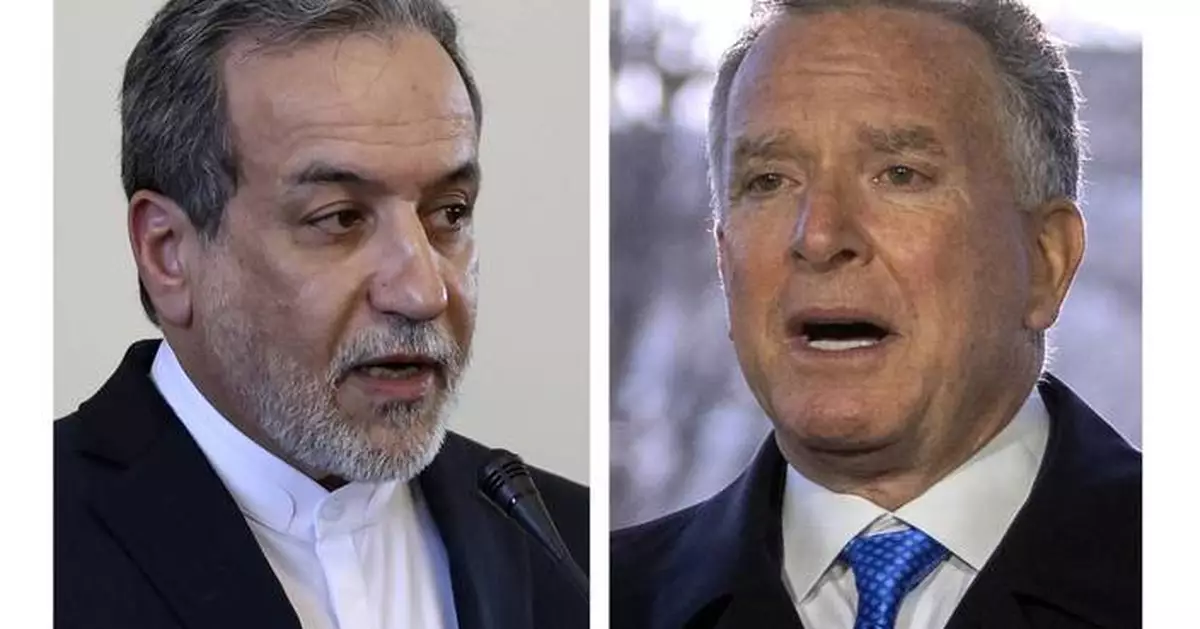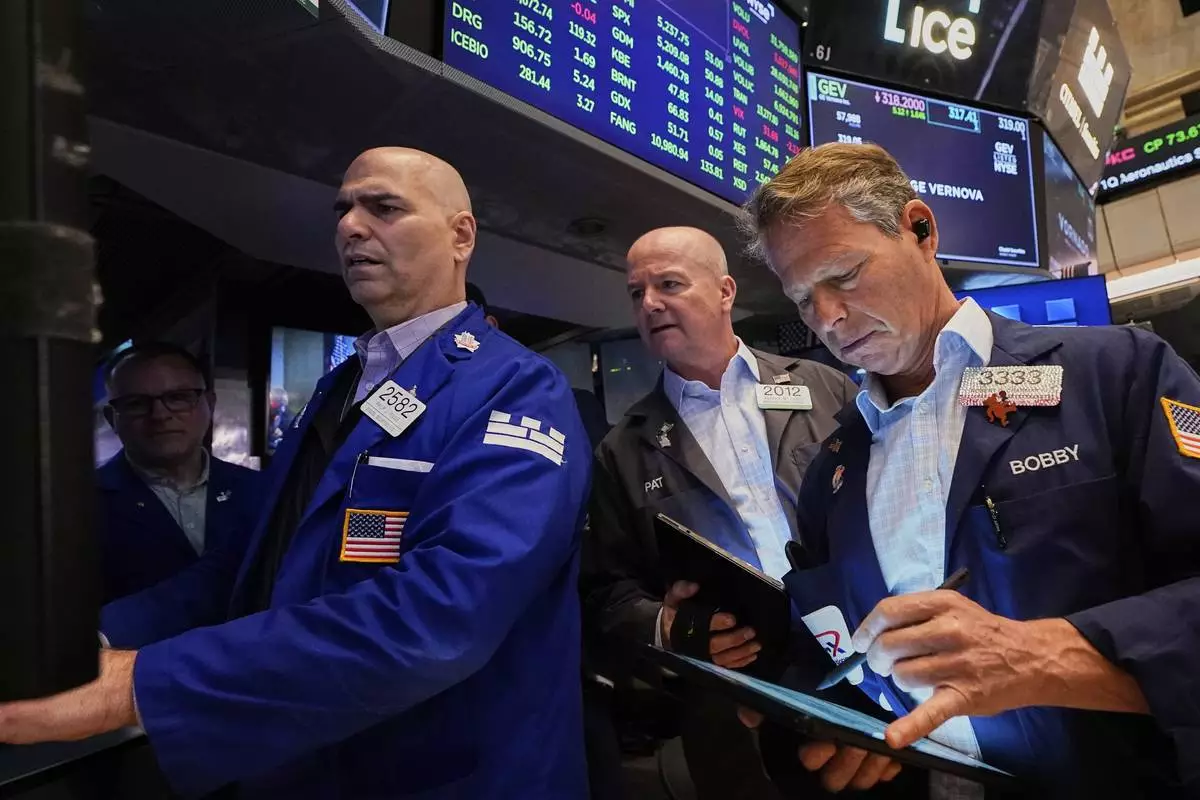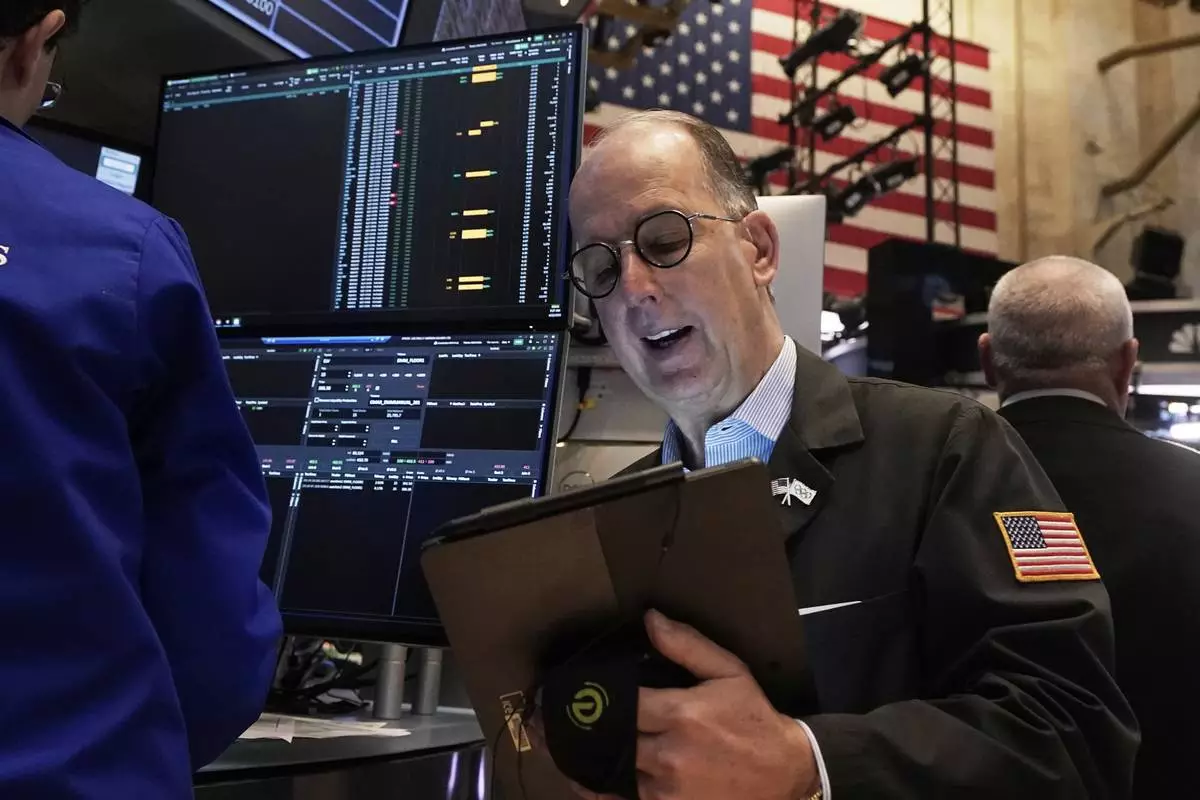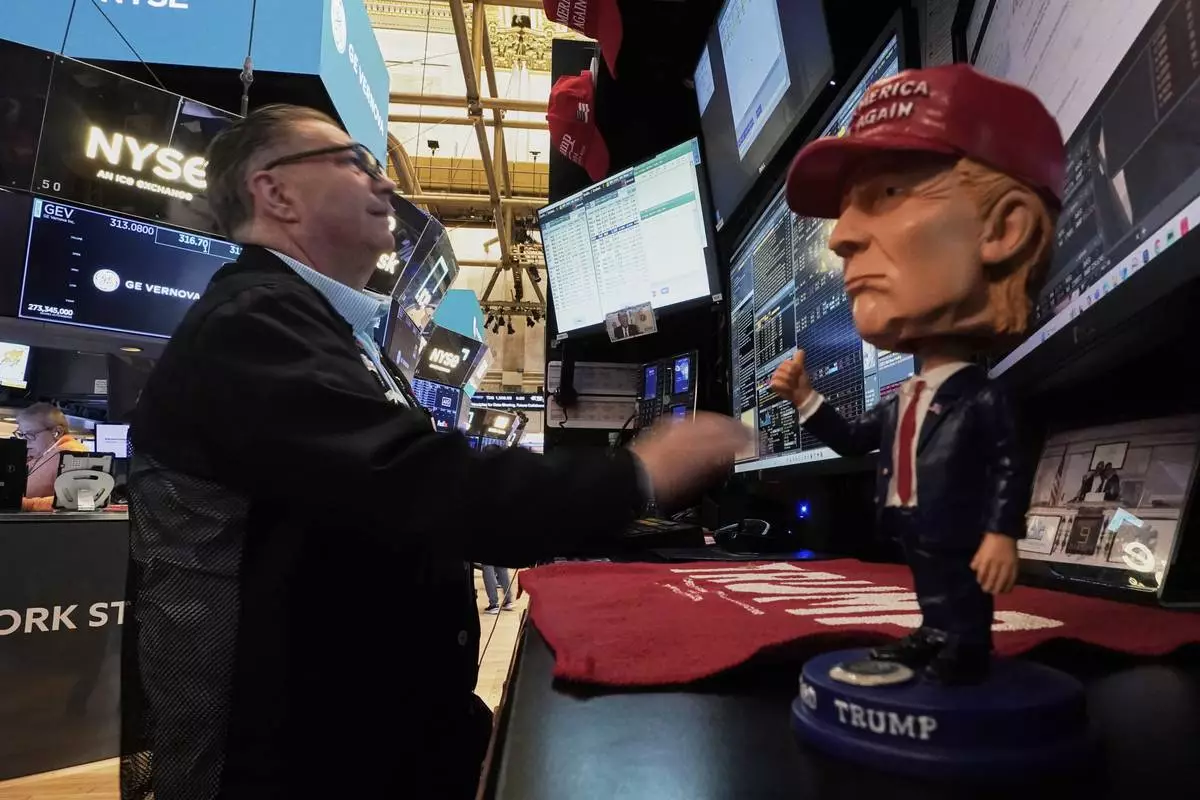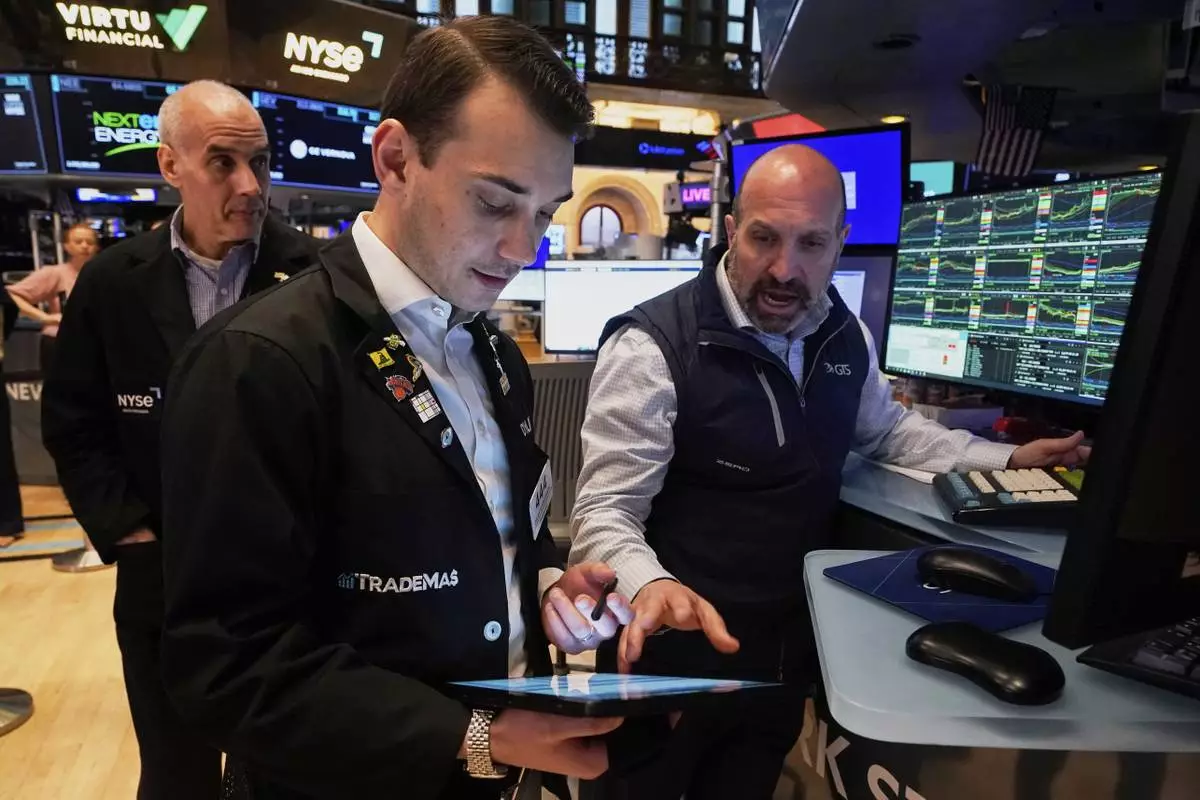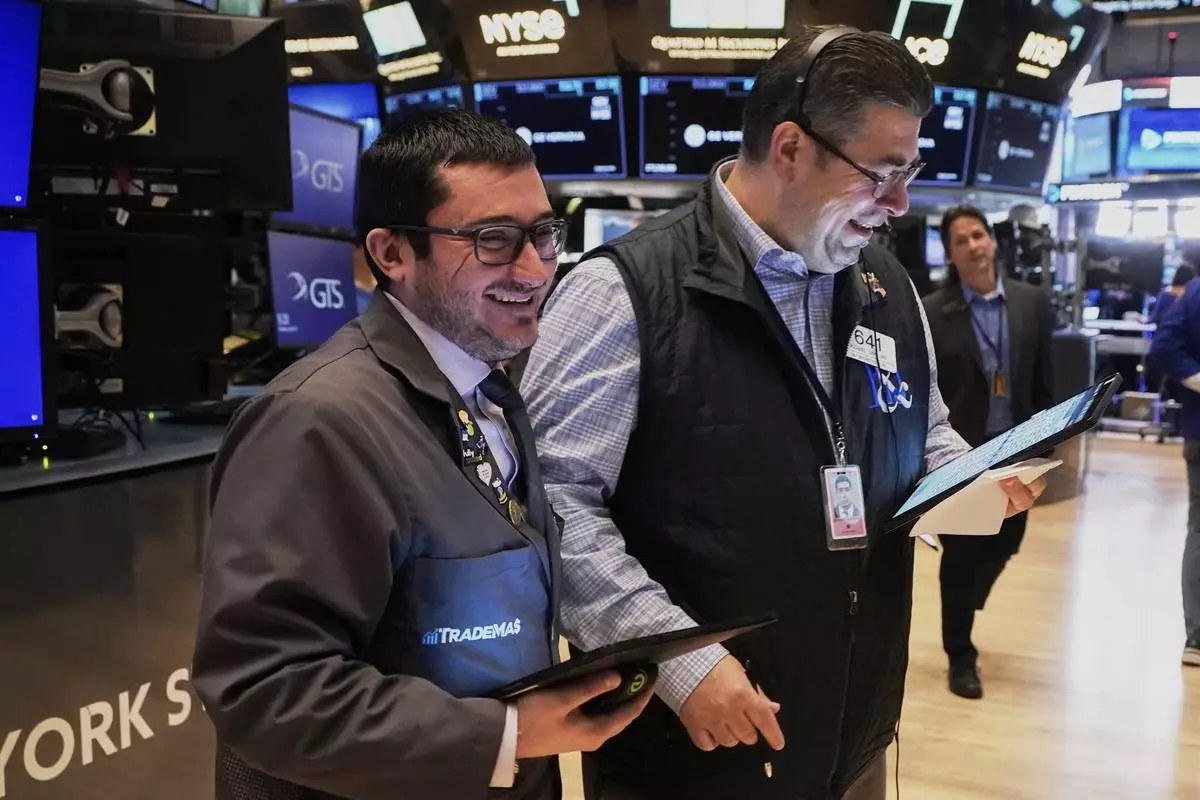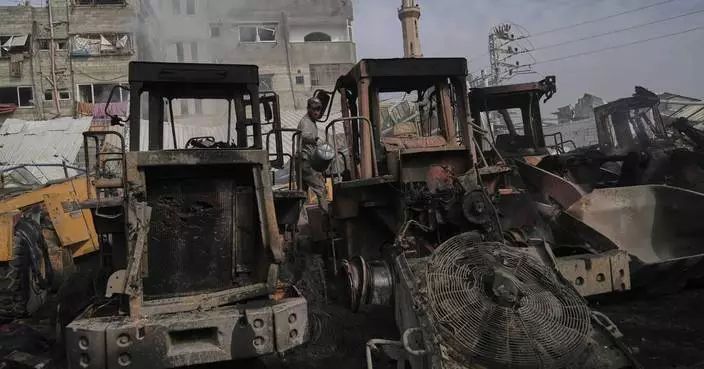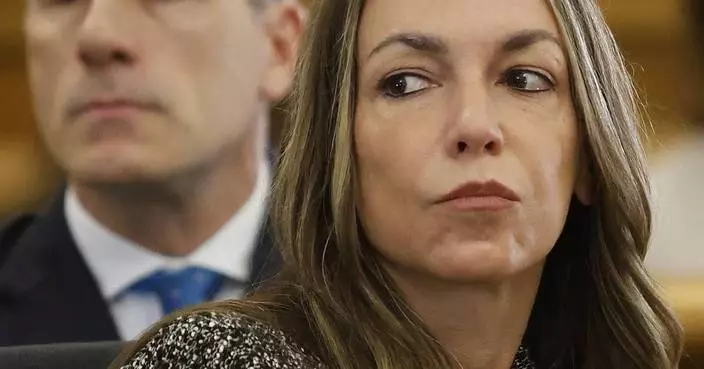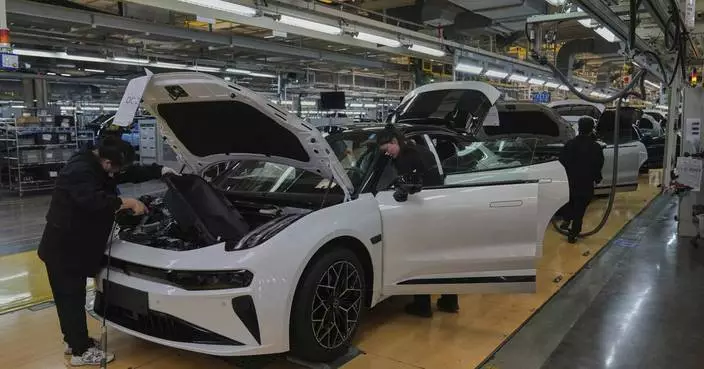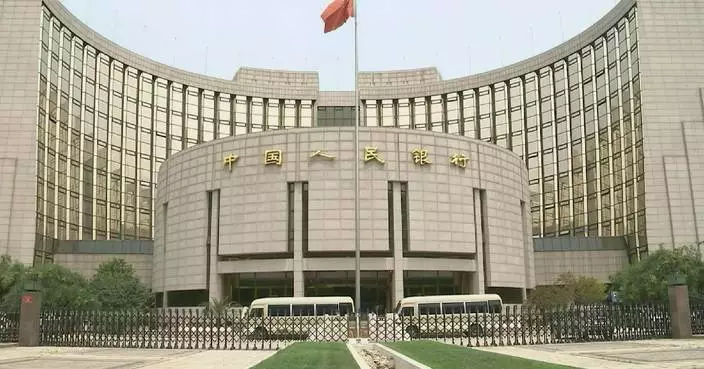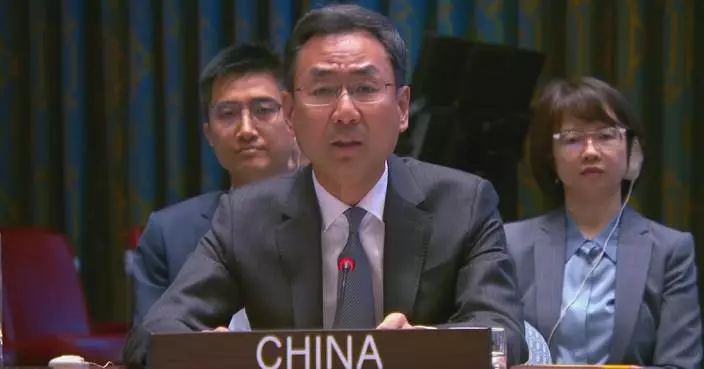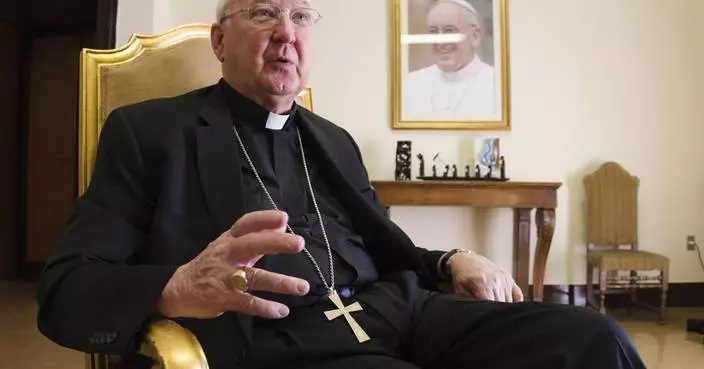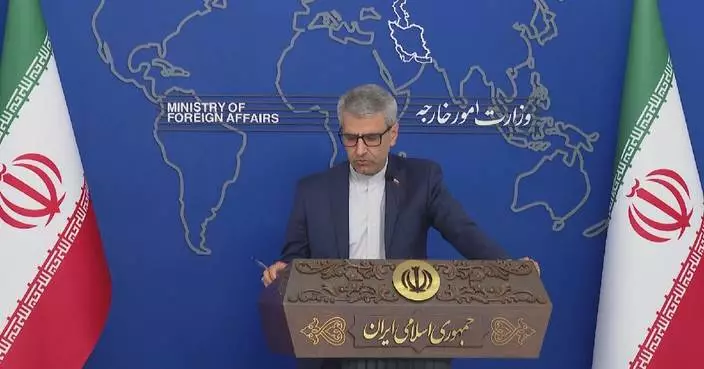DUBAI, United Arab Emirates (AP) — Iran 's foreign minister said Tuesday he'll meet with U.S. envoy Steve Witkoff in Oman for the first negotiations under the Trump administration seeking to halt Tehran’s rapidly advancing nuclear program as tensions remain high in the Middle East.
Speaking to Iranian state television from Algeria, Abbas Araghchi maintained that the talks would be indirect, likely with Omani mediators shuttling between the parties. U.S. President Donald Trump, in announcing the negotiations on Monday, described them as direct talks.
Years of indirect talks under the Biden administration failed to reach any success, as Tehran now enriches uranium up to 60% purity — a technical step away from weapons-grade levels. Both the U.S. and Israel have threatened Iran with military attack over the program, while officials in Tehran increasingly warn they could potentially pursue a nuclear bomb.
“Our main goal in the talks is naturally restoring rights of people as well as lifting sanctions, and if the other side has a real will, this is achievable, and it has no relation to the method, either direct or indirect," Araghchi said. “For the time being, indirect is our preference. And we have no plan to alter it to direct.”
Araghchi’s comments left space for Iran to potentially hold direct talks eventually with the Americans. Such talks aren’t known to have been held since the Obama administration.
State Department spokeswoman Tammy Bruce told reporters Tuesday that Witkoff would participate. “He'll be present,” she said.
The Washington Post later published an opinion piece from Araghchi in which he maintained that “Iran is ready to engage in earnest and with a view to seal a deal.”
“Pursuing indirect negotiations is not a tactic or reflection of ideology but a strategic choice rooted in experience,” he added. "To move forward today, we first need to agree that there can be no 'military option,' let alone a ‘military solution.’”
After Trump's comments on the talks went public, Iran's ailing economy showed new signs of life. Its rial currency, which hit a record low of over 1 million rials to the dollar, rebounded Tuesday to 990,000 rials. The Tehran Stock Exchange separately rose some 2% on the news.
Iran’s economy has been severely affected by international sanctions, particularly after Trump unilaterally withdrew America from Tehran’s nuclear deal with world powers in 2018. At the time of the 2015 deal, which saw Iran drastically limit its enrichment and stockpiling of uranium in exchange for lifting of international sanctions, the rial traded at 32,000 to the dollar.
Economic upheavals have evaporated the public’s savings, pushing average Iranians into holding onto hard currencies, gold, cars and other tangible wealth. Others pursue cryptocurrencies or fall into get-rich-quick schemes.
The negotiations Saturday come after Trump wrote to Iran’s Supreme Leader Ayatollah Ali Khamenei, trying to jump-start direct talks between Tehran and Washington. Khamenei came down hard on Trump in February and warned talks “are not intelligent, wise or honorable” with his administration.
Meanwhile, Trump is continuing an airstrike campaign targeting the Iranian-backed Houthi rebels in Yemen, the last force in Tehran’s self-described “Axis of Resistance” able to attack Israel with any regularity after other militant groups were severely weakened by Israel during its war on Hamas in the Gaza Strip.
There had been anger toward Trump from Iran's theocracy, particularly over his decision to launch a drone strike that killed prominent Iranian Gen. Qassem Soleimani in Baghdad in 2020. U.S. officials have said Trump faced assassination threats from Iran in the lead-up to the 2024 presidential election.
But Iran may be taking a different path now. The hard-line Iranian newspaper Kayhan on Saturday published a piece warning: "Trump will be dead from several bullets into his empty head in revenge for Martyr Soleimani’s blood.” A day later, the Press Supervisory Board in Iran's Ministry of Culture and Islamic Guidance issued a warning to the daily over the article, which the newspaper later described as satire.
Israeli Prime Minister Benjamin Netanyahu published a video reiterating his claim that only a deal like one struck with the late Libyan dictator Moammar Gadhafi would work for Iran. It saw Gadhafi give up his clandestine nuclear program. Iran has insisted its program, acknowledged to the International Atomic Energy Agency, should continue.
“We agree that Iran will not have nuclear weapons," said Netanyahu, who was sitting next to Trump when he announced the talks. "This can be done in an agreement, but only if this agreement is on the Libyan model, where you go in, blow up the facilities, dismantle all the equipment, under American supervision, American execution."
He added: "The second option is that this won’t happen, that they will just drag out the talks, and then the option is military. Everyone understands that. We discussed that at length.”
Meanwhile, asked about Trump’s mention of planned direct talks between the U.S. and Iran, Kremlin spokesman Dmitry Peskov said Moscow welcomes them, adding that “we support settling the issue of the Iranian nuclear dossier by political and diplomatic means.”
Peskov added in a conference call with reporters: “We are aware that certain contacts, both direct and indirect, are planned in Oman and we can only welcome them as they could lead to the de-escalation of tensions around Iran.” His remarks come as Trump is trying to negotiate a separate peace deal between Russia and Ukraine, talks that also have happened in the Middle East, in Saudi Arabia.
An expert-level meeting among representatives from Russia, China and Iran was to take place in Moscow on Tuesday to discuss Iran’s nuclear program, according to Russian foreign ministry spokeswoman Maria Zakharova in comments carried by Russian news agencies.
Vahdat reported from Tehran, Iran. Associated Press writer Natalie Melzer in Nahariya, Israel, contributed.
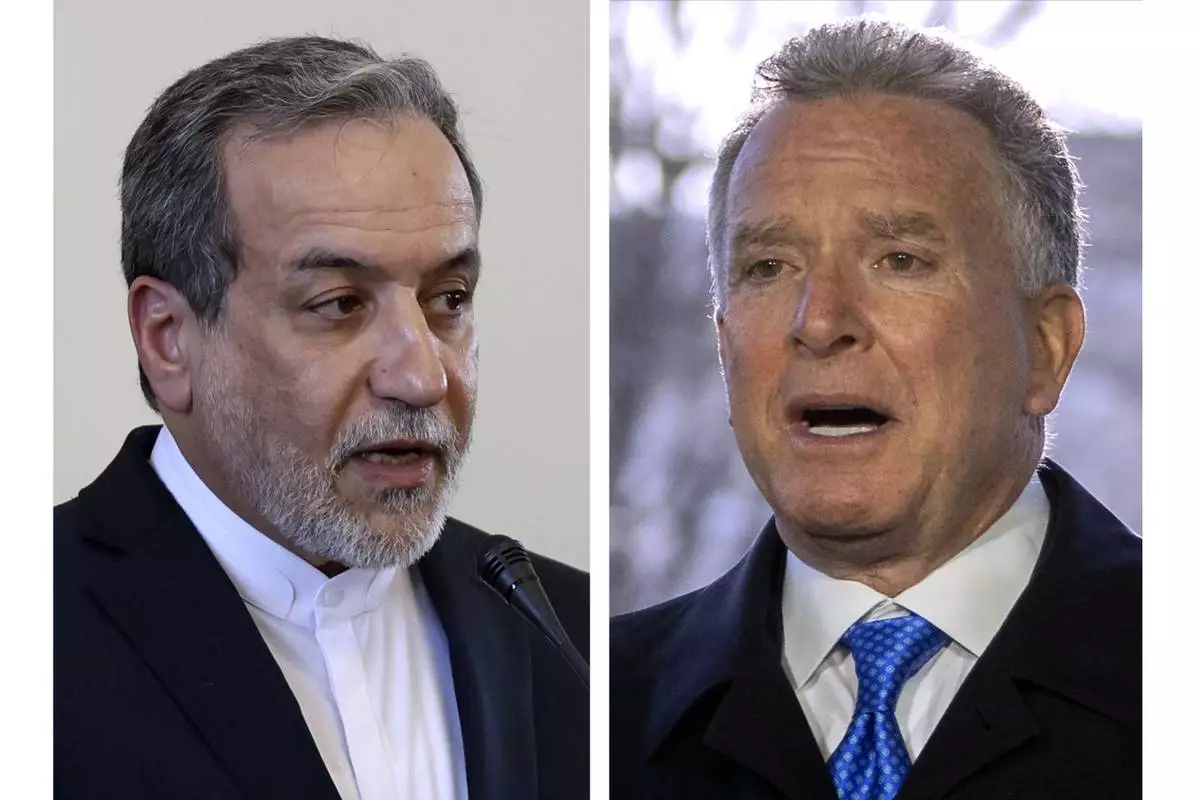
This combo shows Iranian Foreign Minister Abbas Araghchi, left, pictured in Tehran, Iran, Tuesday, Feb. 25, 2025 and Steve Witkoff, right, White House special envoy, pictured in Washington, Wednesday, March 19, 2025. (AP Photos Stringer, Mark Schiefelbein)


